- Home
- Keith Douglass
Enemies c-15 Page 14
Enemies c-15 Read online
Page 14
“Roger, Devil Dog,” the American Tomcat pilot said. “SAR is inbound at this time. Remain in orbit over him pending pickup.”
“Roger, copy all. Interrogative ETA of the SAR bird?” Thor asked.
“So you have repaired your radio?” another voice broke in. Thor recognized the voice of the Greek strike leader. “Then join on my wing. We will make sure that you are within visual communications range until we land.”
There was a short pause, then the American Tomcat pilot said, “Negative, strike leader. Devil Dog 202 must remain on station to protect the landing zone.”
“Any threat to the landing zone has already been neutralized,” the Greek shot back. “Obey my orders immediately.”
Thor didn’t even bother answering. There was no way he was going to leave his wingman, no way. He shouldn’t have left him the first time, but the seconds and the miles had flashed by and he’d been over the IP. He felt a wave of regret and shame. If he’d orbited over Murphy’s position, he might have been able to keep them off of him.
And just who the hell were they, anyway? One of them was a soldier by the looks of him, outfitted in green camouflage uniforms. The other, he wasn’t so sure. In a fight like this, just being a woman didn’t earn her any points. They were just as dangerous as the men.
And where was the guy, anyway? The woman was standing in the field with Murphy, waving like a mad dog. But the guy — was he off in the brush to the side, sighting down on Thor with a Stinger even at this moment?
Probably so. Thor took on some altitude, not enough to put him out of range but enough to give him some maneuvering room. Or at least the illusion of it. His odds of getting away form a Stinger at this range were nil
“Devil Dog, helo inbound in three mikes. How copy?”
“Copy three mikes. Advise the helo that the LZ may be hot.”
“That woman with him?”
“There was a man with her earlier, military.”
Silence then, and Thor knew what the Tomcat lead was thinking. The woman, out making happy faces and enticing the aircraft in with the downed pilot. The man, ready in the bushes as soon as a target came within range. It was a trap, pure and simple. And without forces on the ground, there was no way to extract Murphy, not without risking the SAR helo.
“I can hose down the area to either side,” Thor said finally. “Lay down some suppressing fire.”
“Roger, I’ll advise the helo. Do you have communications with Murphy?” Tomcat lead asked.
“Negative. That’s him, though.”
Another long silence. Without communications, there was no way to direct the pilot to a safer pickup area. They were playing a come as you are game, and in a dangerous situation.
“Roger, Devil Dog. Be advised that SAR helo is standing off one mike out waiting for clearance to the LZ. You take the left side — I’ll take the right. If anything’s standing after we’ve expended our rounds, you owe me a drink.”
“Roger, copy all. Murphy will know what’s up and he’ll stay put.” Thor had been orbiting overhead, and now he descended again, pushing the Hornet into a maximum rate of descent. He pulled up hard, cut back on the power, and walked a stream of rounds down one side of the LZ while the Tomcat took the opposite side. Just as they reached the midpoint, a figure broke out of the cover and headed for the center of the field — and for Murphy.
“Get him,” Thor shouted. “Now, lead!”
The ground around the running man exploded as the bullets rained down on it from the Tomcat. Thor tried to maneuver around to get a shot at him himself, but he couldn’t do so without fouling the Tomcat’s field of fire. He took another pass down his side of the field, hoping to scare out another tango.
Hill 802
0943 local (GMT –2)
“That’s Thor,” Murphy shouted as the Hornet passed down the side of the field. “The helo is here — look.” He pointed off in the distance at a helicopter well out of range. “We’re getting out of here.”
“Stop them,” Pamela screamed. “You’ve got a radio, don’t you? You’ve got to stop them.”
“Why the hell should I?” he snapped, the earlier confusion and apparent weakness now completely gone. “They don’t clear the LZ, we don’t get out of here.”
“You’re leaving. I’m not.”
“What?”
“I’m not,” she repeated. “I’m not military… I’m a civilian.”
Suddenly a figure broke of the tree line and started running toward them. He danced across the open field, zigging and zagging in an attempt to foil the targeting of the Tomcat. The rounds stopped falling as he came closer to them, and when he stopped he grabbed them by their arms and held one on either side of him.
Murphy was reaching into a pocket on his flight suit, and Pamela could see the outline of a handgun pressed up against the fire-retardant cloth. He fumbled as he pulled it out, and Xerxes’s hand closed around his wrist. He shook Murphy’s wrist once, then twisted his arm up behind him. “No guns. It’s her fault I’m even here, and I’m not getting shot for my troubles.”
Murphy yelped, then dropped the gun as Xerxes’s fingers dug deep into the bone. The Macedonian scooped it up and deposited it in his own pocket.
“They won’t come in if you’re here,” Pamela said, her words slightly slurred. It was getting harder and harder to stay focused — the shock creeping up on her, she supposed.
“That’s the idea.” The Macedonian pulled her hard up against him. “They’re not coming in.”
“We can leave,” she said. “We go back into the trees, let the helo come in and pick him up. They won’t shoot at me.”
“You’ve got the wrong idea again about who will shoot at who and why. Right now, he’s our only protection,” Xerxes said, shaking the pilot lightly. “We let him go and they’ll kill us both. You see what they did to the land on either side of us?”
“Murphy would tell them who I am,” she insisted. “They won’t take the chance of hitting me.”
“I think you’re missing the whole point of this. They’re supposed to be shooting at me — and I’m supposed to be keeping them from doing that. Now let’s get moving.”
Devil Dog 202
0944 local (GMT –2)
“Weapons tight, weapons tight! We’ve got friendlies in the area.” Thor was shouting now, venting his frustration over the circuit. “Dammit, they’ve got Murphy. I saw them go into the trees.”
Silence greeted his demand. They all knew the score.
“Break off, Devil Dog. We can’t take the chance,” the Tomcat lead said finally. “RTB.”
Every Marine is a ground soldier first, and Thor was no exception. His hands ached for a rifle, a sniper scope, anything that would be useful in picking off the two terrorists that had custody of his wingman. The Hornet was a powerful weapon, but it was a blunt one. This situation called for precision fire, something he couldn’t produce no matter how much he wanted to. To watch his wingman being led away, moving slowly and awkwardly in the custody of the two Macedonians was almost more than he could bear. Sheer impotent rage swept through him and he howled his frustration and anger in the cockpit, the scream echoing off the canopy around him.
But the Marine Corps habit of obedience under the most dangerous of circumstances was already reasserting itself, taking over. He was gaining altitude, falling back into position on lead, maintaining a rock steady formation flight position even as every atom of his being ached to stay overhead, waiting, hoping for some chance to kill the two captors.
Tavista Air Base
Tavista, Greece
1010 local (GMT –2)
“If your pilots had followed the flight plan, there would have been no danger.” General Arkady’s voice was implacable. “Yet they chose to deviate from it. They put themselves at risk.”
Tombstone watched him impassively, hiding the wild rage storming through him. “No mission goes exactly as planned,” he said. “That’s why we brief contingencies. So p
ilots will know how to compensate for the unexpected.”
Arkady shrugged. “In combat, one must learn to expect losses. Do you know how many men I have lost in the last six months before the United States so generously decided to come to our assistance?”
“You could have told me about the SAM site,” Tombstone said. His voice was harder and colder than it had been a moment before.
“I thought it had been destroyed. We only learned otherwise this morning. If we had deviated from the briefed plan, we would have put sensitive intelligence assets at risk. Once they are burned, they are no longer of any use, are they?” Arkady asked, as though his reasoning were eminently clear with it to anyone with the slightest common sense.
Shock and horror settled over the room, among both Greek, American and other foreign aviators alike. Tombstone glanced around room and saw that only Arkady’s general staff failed to react. One man had the good grace to look ashamed.
What’s his name? Colonel Zentos. I’ve seen that look on men’s faces before.
“The point of intelligence is to save lives of pilots,” Tombstone said. “At least in my service.” General Arkady met his harsh glare without the slightest trace of regret on his face.
“Many men have died, Admiral. Many more will before this is over. And not just men — women, children, the very old. How easy it is for us so far away to panic over the first loss of life.” He gestured to encompass the entire room. “Ask my men how many we’ve lost? Then tell me that I should risk my sensitive intelligence assets that are now making a difference.
“And may I point out, I sent my own men in first. Had your pilots stayed with the plan, followed their strike leader, they would have been home even now.” General Arkady settled back into his chair and made a dismissive gesture. “Now, for tomorrow’s strike, we will—”
“You will disclose every bit of intelligence you have.” Tombstone leaned forward and placed his hands flat on the table, splaying his fingers and nailing down the edge of the paper Arkady was reading. “Do I make myself clear? Every bit of it, General. Or my forces don’t fly.”
Arkady looked up, quiet amusement on his face. “You forget yourself, Admiral. They’re no longer your forces. They’re under my direct operational control. You’re here as a matter of courtesy—my courtesy in allowing an advisor from America to participate in command decisions. Perhaps that is the mistake.” He leaned back in his chair and clasped his hands behind his head. “Perhaps I should have you removed.”
“If I go, so do my people.”
“Are you so sure?” Arkady asked. “I think before you make such rash statements, you should consult your authorities at home. They may have other ideas.”
“Come on,” Tombstone said, gesturing to the assembled Americans. “I want talk to you — alone.”
Arkady waved them away. “You have my permission to consult with my forces, Admiral. But don’t forget who owns the firepower around here. They’re my men and women — not yours.”
The Americans, without exception, followed Admiral Magruder of the conference room and down the hall to an unused ready room that had been assigned to them for temporary usage. Away from the other nationalities, the stolid veneer they had all applied to their faces cracked and shattered. The skipper of the VF-95 slumped down in the front chair and buried her face in her hands. Tombstone sat down next to her, resisting the urge to place an arm around her shoulders. “I know how you feel,” he said softly. “Don’t worry, we’ll get them back.”
Tomboy looked up, anguish on her face. “Admiral — Tombstone — what he said is true. I chopped to his command and control yesterday — didn’t Batman let you know? Except for administrative matters. If he tells me to fly mission, I have to or face the consequences. How am I supposed to explain court-martialing Smith if I pick and choose what orders I’m going to obey?”
Tombstone nodded. “I know. But no one back home had this in mind when they did that. It was political maneuvering of the worst possible sort, an attempt to curry world favor by placing forces the Greeks can’t begin to imagine at their disposal. If they had had any idea that Arkady would be wasting lives like this, it never would have happened.”
“Are you so sure?” Tomboy shot back. “Hell, I don’t know what to believe right now. Maybe that’s all we are anymore — cannon fodder.”
Tombstone stood now, and addressed the assembled man and women. “Any of the rest of you feel like that?” he asked. A few guilty nods, eyes averted, answered him. He felt something crumple and die inside his chest. “If that’s the way you feel, that’s all you’ll ever be. But you’ve got it wrong, every last one of you.” He strode to the podium in front of the room and turned to address them. “What you are is the world’s most elite fighting unit. Sure, the Greeks have Tomcats. You’ve seen how they maintain them — and how they fly them. Is there a single pilot among you who doesn’t know deep down in his heart that he’s better than anyone they can field?”
The expressions were brighter now, the aviators leaning forward on the edges of their seat. Tombstone continued, “I won’t lie to you and tell you that I like the situation we’re in here. But it’s not the first time, and it won’t be the last time. We’ve all been in tough situations before. But what American pilots do, they do better than anyone else in the world. I don’t like the command structure we’re in here. Nor will I tolerate any of you disobeying General Arkady’s orders. It’s my job to get this mess straightened out, and I promise you, I will. Until then, I need you to hold together. Just for a day, maybe two. Once JCS and the president hear about this little incident, there’s going to be hell to pay.”
And there would be hell to pay, but not exactly in the manner that Tombstone had envisioned. Nor were the results to be anything he could’ve anticipated.
THIRTEEN
Wednesday, 10 May
United Nations
0745 local (GMT +5)
“Damn them to hell,” Wexler swore, throwing the message board down on the floor. “T’ing — he knows something about this. He knew and didn’t tell me — not in so many words, nothing I could use.”
Jack picked the clipboard up and studied the top sheet. He’d already heard the general story on CNN, but the details were even more chilling.
The commander of the UN Forces, General Dimitri Arkady, was demanding that the United States withdraw its special advisor, Admiral Tombstone Magruder. The body of the message was filled the vitriol and hate, posing as a complaint about Tombstone’s performance while embarking on a ranting diatribe against America’s foreign policy and political systems. It ended with an appeal to all member nations — and with dismay, Wexler noted that every nation was an info addee to the message — band together to force the Americans to stop using the UN as their own private rubber stamp for the American agenda overseas. It concluded with thanks to the General Assembly for taking the opportunity to achieve a lasting peace in the area, and expressed every confidence that the rest of the nations would understand the deep, grave, and sincerely held objections that Arkady had to Tombstone’s continuing presence in the region.
“What are you going to do?” Jack asked after he’d read the message twice, more to be polite and give Sarah Wexler the illusion that he didn’t already know what she’d say.
She sighed. “I’m going to see the president. I argued against this whole idea when he proposed it, but he wasn’t listening. Maybe now he’ll understand why foreign command of American troops is a pipe dream.” She stabbed on finger at the offending message. “This is just one of the things that can go wrong.”
Tombstone Magruder. Jack had met him several times, traveling in the surprisingly small circle of people whose opinions mattered, who actually had some well-thought-out views on international affairs. Smart man, for a naval officer. He didn’t pretend to have all the answers, nor did he try to fake understanding the details of how the UN and its member nations worked. That took years, and Jack was just starting to get proficient at the s
tandard fare of back-door deals and negotiated compromises that were the UN’s stock in trade.
Even apart from his relative naivete, though, Tombstone had managed to impress both Jack and his boss with his understanding of how they worked, even if the actual details eluded him. That Tombstone had understood immediately made Jack consider the possibility that perhaps the Navy had more going on inside its senior ranks than Jack had thought before. He’d always had the impression that all senior military men and women were idealistic and ethical, a perception that had not changed since the days that his own father was a senior enlisted man in the Army. Power plays, rice bowls, personal power — he’d thought them all a little too good for the sort of down and nasty horse-trading that international politics required. You did the dirty with the other nations and called in the forces when everything else failed.
But with Tombstone, it had been different. Even back in the Spratley’s conflict, when Tombstone had forged together an alliance of unlikely allies to defeat the Chinese surge into the oil-rich islands. In Cuba, when he’d faced down the island nation supplied with nuclear warheads from Libya.
It had been Hong Kong that had made the difference, Jack decided. In tacking down the source of advanced technology used against the American forces during a period of infighting in the Hong Kong administration, Tombstone had been exposed to international intrigue on a level that few active duty military officers experienced. Coming on the heels of the admiral’s search for his father in Vietnam and Russia, it had obviously seasoned him from a superb war fighter to a potent force with a frightening insight into the realities of everyday international politics.
“What do you think the president will do?” Jack asked, aware that he’d been silent for some time as he sorted out the pieces to this particular puzzle himself.
“I’m hoping he refuses,” Wexler said. “I’m not certain he will, though.”

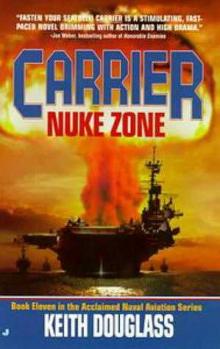 Nuke Zone c-11
Nuke Zone c-11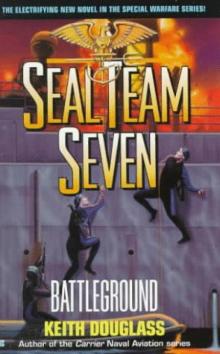 Seal Team Seven 6 - Battleground
Seal Team Seven 6 - Battleground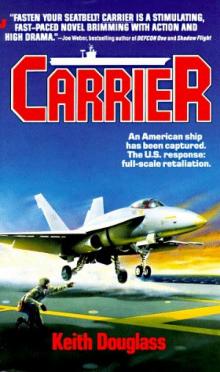 Carrier c-1
Carrier c-1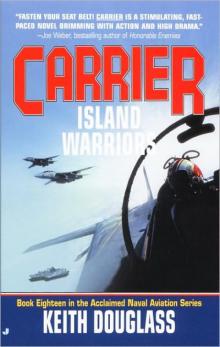 Island Warriors c-18
Island Warriors c-18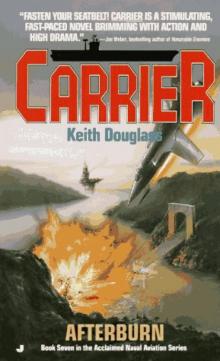 Afterburn c-7
Afterburn c-7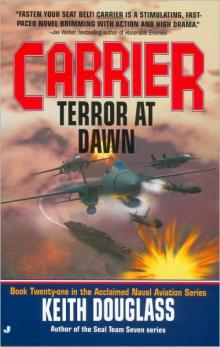 Terror At Dawn c-21
Terror At Dawn c-21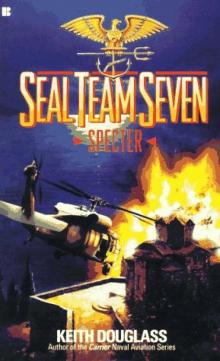 Specter sts-2
Specter sts-2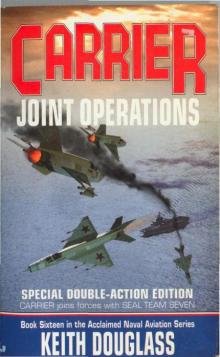 Joint Operations c-16
Joint Operations c-16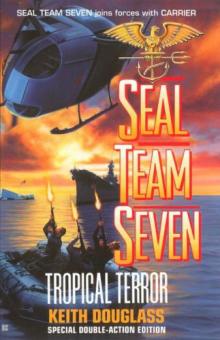 Tropical Terror sts-12
Tropical Terror sts-12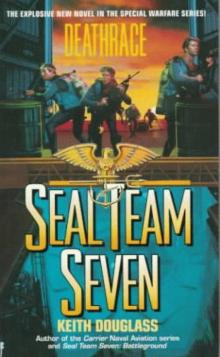 Seal Team Seven 7 - Deathrace
Seal Team Seven 7 - Deathrace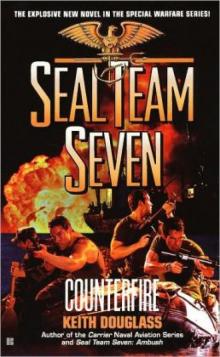 Counterfire sts-16
Counterfire sts-16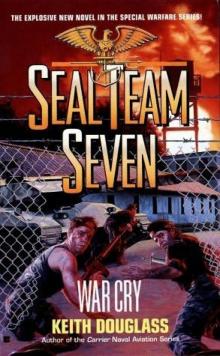 War Cry sts-9
War Cry sts-9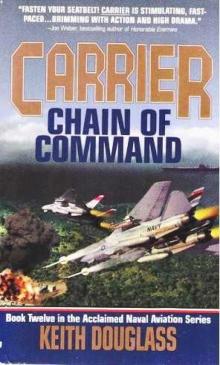 Chain of Command c-12
Chain of Command c-12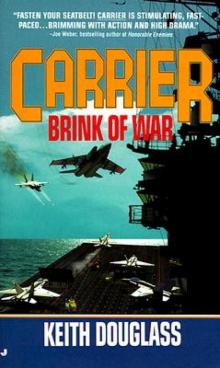 Brink of War c-13
Brink of War c-13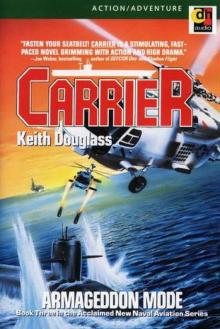 Armageddon Mode c-3
Armageddon Mode c-3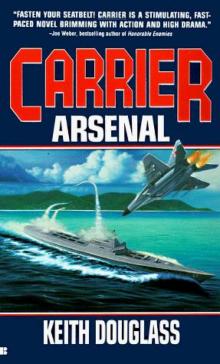 Arsenal c-10
Arsenal c-10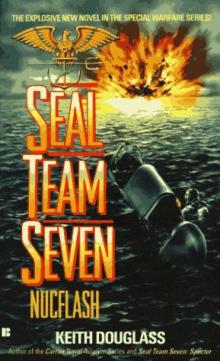 Nucflash sts-3
Nucflash sts-3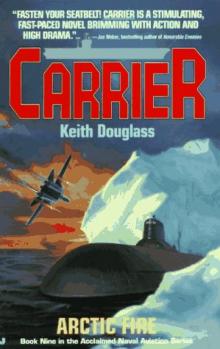 Arctic Fire c-9
Arctic Fire c-9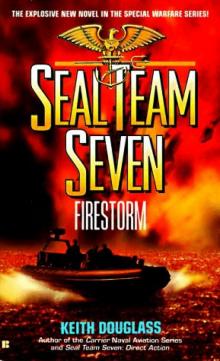 Firestorm sts-5
Firestorm sts-5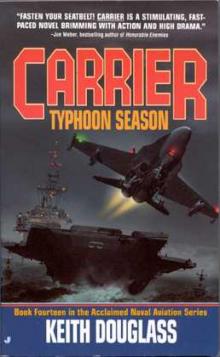 Typhoon Season c-14
Typhoon Season c-14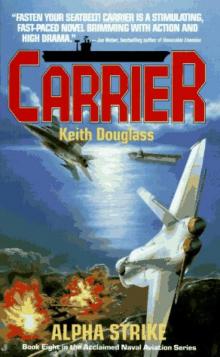 Alpha Strike c-8
Alpha Strike c-8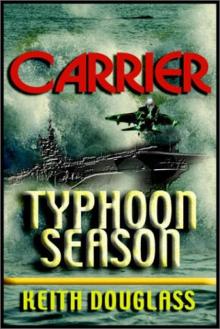 Carrier 14 - TYPHOON SEASON
Carrier 14 - TYPHOON SEASON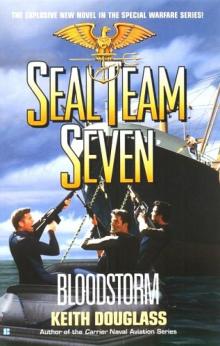 Bloodstorm sts-13
Bloodstorm sts-13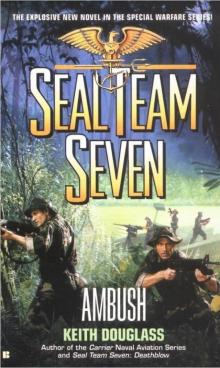 Ambush sts-15
Ambush sts-15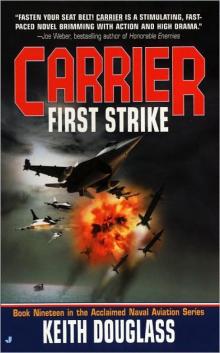 First Strike c-19
First Strike c-19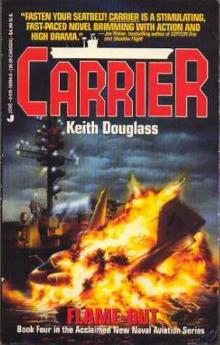 Flame Out c-4
Flame Out c-4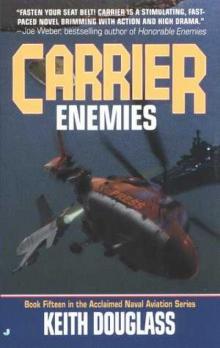 Enemies c-15
Enemies c-15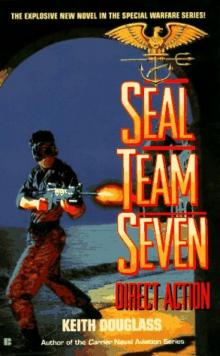 Seal Team Seven 04 - Direct Action
Seal Team Seven 04 - Direct Action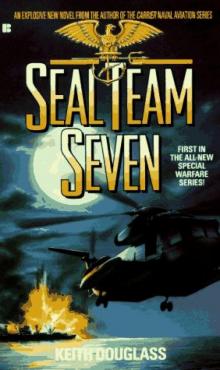 Seal Team Seven 01 - Seal Team Seven
Seal Team Seven 01 - Seal Team Seven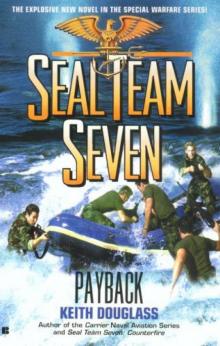 Payback sts-17
Payback sts-17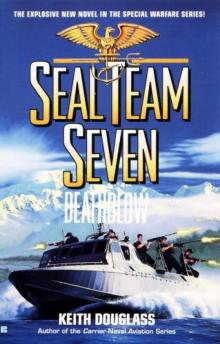 Death Blow sts-14
Death Blow sts-14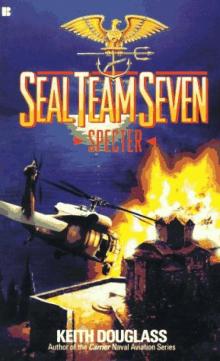 Seal Team Seven 02 - Spector
Seal Team Seven 02 - Spector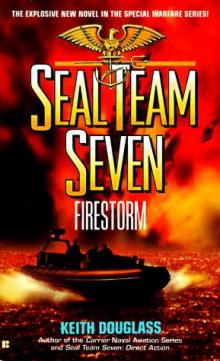 Seal Team Seven 5 - Firestorm
Seal Team Seven 5 - Firestorm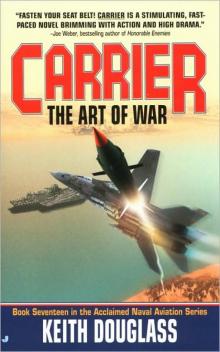 The Art of War c-17
The Art of War c-17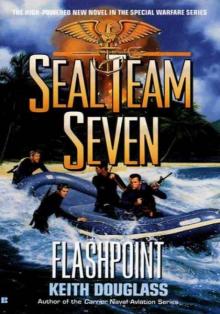 Flashpoint sts-11
Flashpoint sts-11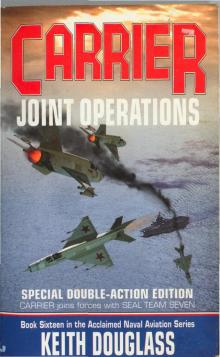 Carrier - Joint Operation Book 16
Carrier - Joint Operation Book 16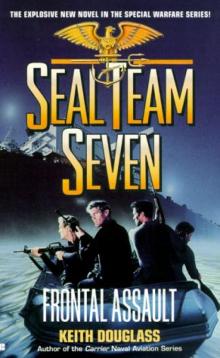 Frontal Assault sts-10
Frontal Assault sts-10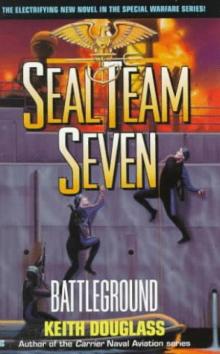 Battleground sts-6
Battleground sts-6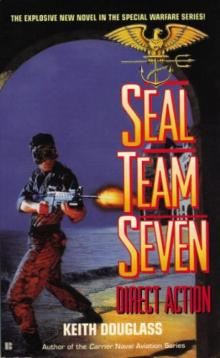 Direct Action sts-4
Direct Action sts-4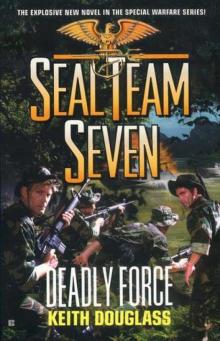 Deadly Force sts-18
Deadly Force sts-18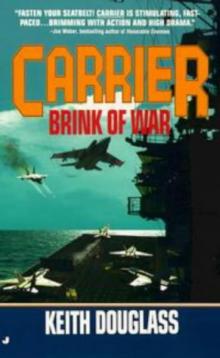 Carrier 13 - Brink of War
Carrier 13 - Brink of War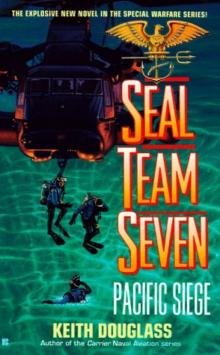 Pacific Siege sts-8
Pacific Siege sts-8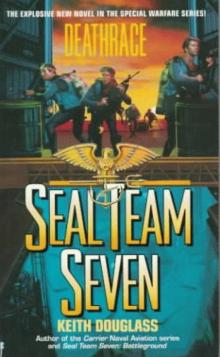 Deathrace sts-7
Deathrace sts-7